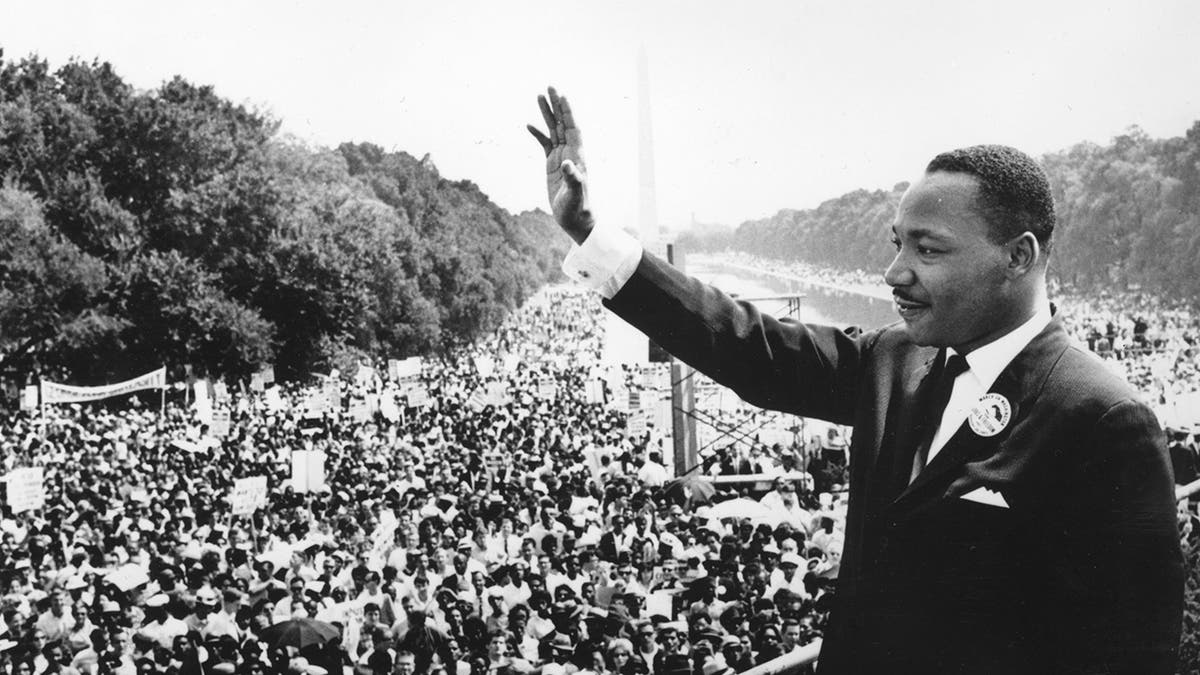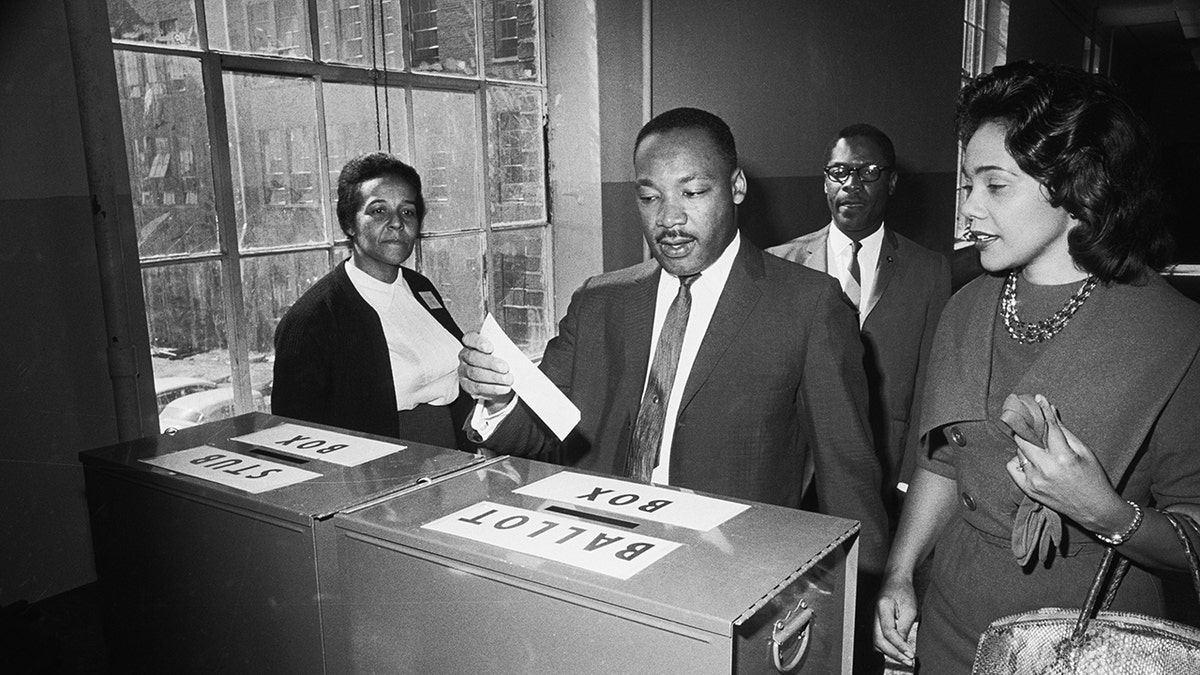Fox News Flash top headlines for January 4
Fox News Flash top headlines are here. Check out what's clicking on Foxnews.com.
Every January, we pause to reflect on Dr. Martin Luther King Jr., one of the greatest Americans to ever live. His voice reverberates through our culture as a voice for freedom, and he will always be remembered and revered for his remarkable role in fighting racial segregation. His unifying message, centered on the American founding and religious ideals, is exactly what our polarized nation needs to refresh itself today.
King truly believed in the spirit of America. He believed that despite the racially divided environment in which he lived, that the true message of freedom and human equality embedded in America’s founding documents were a "promissory note" destined to come to fruition.
He proclaimed, "This note was a promise that all men — yes, Black men as well as White men — would be guaranteed the unalienable rights of life, liberty and the pursuit of happiness."
Today, there are some who seek to disparage America’s founders for their flaws in character, and then by extension, suggest that the founding documents should be discarded, because they are like fruit from a poisoned tree.

Civil rights leader Dr. Martin Luther King Jr. (1929-1968) waves during the March on Washington at the Lincoln Memorial, Washington D.C., where he gave his "I Have A Dream" speech. (Central Press/Getty Images)
King took a different route and was met with great success. He acknowledged the power and beauty in the documents that those flawed men constructed and signed. Two things can be true at the same time: one can acknowledge that the founders did not wholly embody the principles set forth in the declaration, and simultaneously acknowledge that those ideals are true and worth striving for.
One could even further make the case that the founding documents are not representative of our founders’ personal sins, and instead represent their better angels. This is why they endure. King was able to distinguish between the magnificent message of America’s founding principles from some of the actions of its writers.
He saw that the route to success was not to throw away the founding creeds, but instead to encourage them to be more correctly upheld. While on the surface he may have seemed to some as being a radical, what he sought was already deeply rooted in the American tradition.
Perhaps one secret to King’s success was his choosing to build on the value of people, rather than knocking them down with guilt. In the same way that building a tall and mighty building requires digging deep into the ground for stability, so too, building up the American public must be done by grounding them in their foundations, the values laid out in our founding documents.
The growth of a tree is dependent upon having strong roots, and likewise is our growth as a nation. King’s dream is indeed the American dream, envisioned by the Founding Fathers, and something that all Americans should get behind.
King’s inspiration reached from even deeper roots than America’s founding values, culling his optimism about a better world from the same source as our Founding Fathers, the Hebrew Bible.
The Hebrew prophets were so central a foundation for him, that his aides at the time remember him carrying around a copy of a Jewish thesis on the biblical prophets. King’s source for equality for all races and peoples was premised on Genesis, that everyone is created in the "divine image."
The Exodus narrative was a central theme first in emancipation, and then later in the civil rights movement, and King would often draw upon the Moses exemplar. Furthermore, in his great speeches, he not only uses Biblical imagery, quotations, and cadence, but also delivers it through parallelism, repetition and alliteration, which are common tools in how the Hebrew Bible delivers a message.

Dr. Martin Luther King Jr. votes as his wife, Coretta Scott King, waits her turn on Nov. 3, 1964, in Atlanta. (Getty Images)
Utilizing a theme from the Hebrew Bible, that this world is ultimately on the trajectory toward perfection and correction, King popularized the idea that the moral arc of history ultimately "bends toward justice."
CLICK HERE FOR MORE FOX NEWS OPINION
Applying the biblical model of inherent human value is what founded the nation and undergirds what continues to perfect it. Neither King nor our Founding Fathers were calling for theocracy, but they knew very well that the biblical worldview was a central banner under which society should unite and be founded upon.
There is a great call to action for our generation, to reconnect with our roots, to ground ourselves in our foundations, focus ourselves on what unites us, and reclaim our glory. To march together toward our common destiny, we must unite in the values of our common history.
CLICK HERE TO GET THE FOX NEWS APP
I join with King, as we all should, in yearning for his vision in Isaiah, "I have a dream that one day every valley shall be exalted, every hill and mountain shall be made low, the rough places will be made plain, and the crooked places will be made straight, and the glory of the Lord shall be revealed, and all flesh shall see it together."
It is when we recognize that we are one nation, under God, that we will be indivisible, and have liberty and justice for all.











































